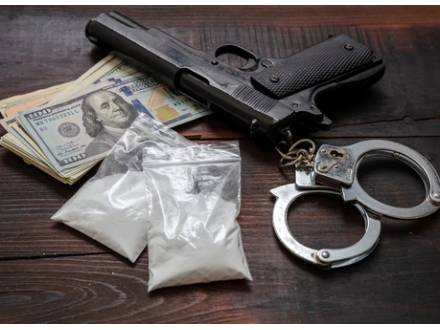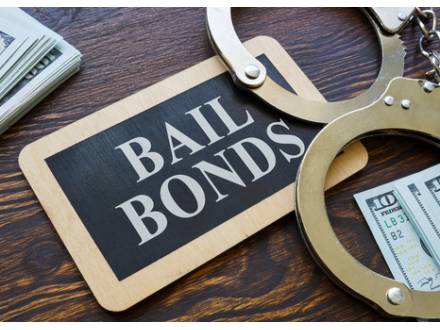Recent Blog Posts
Texas Rangers Investigate Water Department Embezzlement Claim
 A third claim of alleged embezzlement against an East Texas water supply group is being investigated by the Texas Rangers. Upshur County District Attorney Billy Byrd said over $100,000 is allegedly missing from the Union Grove Water Supply Co-op. The board claims that an office employee embezzled the money.
A third claim of alleged embezzlement against an East Texas water supply group is being investigated by the Texas Rangers. Upshur County District Attorney Billy Byrd said over $100,000 is allegedly missing from the Union Grove Water Supply Co-op. The board claims that an office employee embezzled the money.
Byrd added that this is not the first report of a similar incident, as complaints were made in 2013 and 2023. In 2013, the DA’s office prosecuted and recovered $40,350, while in 2023, a different employee allegedly took $8,000. Since this is the third complaint, Byrd has asked that the Texas Rangers lead the investigation, while also asking those making payments to the water department not to pay in cash.
In Texas, the line between employee error and embezzlement can be very thin. What begins as a bookkeeping error or informal use of petty cash funds can quickly escalate into felony theft charges. Because embezzlement involves a breach of trust, prosecutors often pursue these cases aggressively. An experienced Karnes City, TX white collar crimes lawyer can help defend you if you are facing embezzlement or other criminal offenses.
Serial Arson Charges in Texas: What Defendants Should Know
 The Williamson County Sheriff’s Office has arrested a man in connection with at least one recent fire in Bartlett. Although the man currently faces one charge of arson, he confessed to being involved in several fires in Bartlett over the last few months, including a church fire, a structure fire, and a fire in a vacant building. Fire investigators identified a pattern that linked at least three of the four fires to the suspect.
The Williamson County Sheriff’s Office has arrested a man in connection with at least one recent fire in Bartlett. Although the man currently faces one charge of arson, he confessed to being involved in several fires in Bartlett over the last few months, including a church fire, a structure fire, and a fire in a vacant building. Fire investigators identified a pattern that linked at least three of the four fires to the suspect.
However, the investigation is still active as law enforcement works to determine whether the suspect is connected to additional fires in the area. Arson is a felony, and one of the most aggressively prosecuted property crimes in the state of Texas, particularly when the defendant is a serial arsonist.
When there are multiple fires involved, prosecutors will bring enhanced charges and seek longer sentences, even though arson cases are rarely as clear-cut as they may seem. Fires can be caused by accident or as a result of faulty electrical wiring. Anyone accused of serial arson (Texas Penal Code Title 7, Chapter 28, Section 28.02) should understand the penalties involved and consult with an experienced Pleasanton, TX criminal defense lawyer.
Armed Road Rage: How a Gun Turns a Misdemeanor Into a Felony
 Road rage incidents are on the rise in Texas and across the nation. In fact, in 2024, 96 percent of drivers polled reported witnessing an act of road rage within the past six months. By October 2024, 116 people had been killed in road rage incidents involving guns, and over the past seven years, a total of 12,610 injuries and 218 murders have been attributed to road rage.
Road rage incidents are on the rise in Texas and across the nation. In fact, in 2024, 96 percent of drivers polled reported witnessing an act of road rage within the past six months. By October 2024, 116 people had been killed in road rage incidents involving guns, and over the past seven years, a total of 12,610 injuries and 218 murders have been attributed to road rage.
There is no doubt that road rage is a problem, but the flip side of that is that a person can end up in prison simply for having a firearm during a road rage incident. Drivers often lose their tempers as high volumes of traffic slow the flow of traffic and lead to accidents during already-stressful commutes. Letting off steam by yelling, honking, recklessly changing lanes, or making a rude gesture would typically result in a traffic ticket or a misdemeanor charge.
When you add a firearm into the mix – even if it is never fired – the stakes change dramatically. In the state of Texas, displaying or using a gun during a road rage encounter can escalate the offense to a serious felony. If you are facing such charges, the consequences can be life-altering. The best thing you can do is to speak to an experienced Jourdanton, TX criminal defense attorney who will work hard to minimize those consequences.
5 Juveniles Suspected of Multiple Robberies in Katy, TX
 In May of this year, five teenagers were arrested in connection with a string of robberies throughout West Harris County. The "crew" is linked to five robberies that occurred between May 6th and 7th at a restaurant and four convenience stores. The teen boys allegedly brandished firearms, stole cash, and assaulted clerks and bystanders. Four of the teens were 13 years old, and one was 15 years old. All five were charged with engaging in organized crime and aggravated robbery, plus additional charges after being booked into the Harris County Juvenile Detention Center.
In May of this year, five teenagers were arrested in connection with a string of robberies throughout West Harris County. The "crew" is linked to five robberies that occurred between May 6th and 7th at a restaurant and four convenience stores. The teen boys allegedly brandished firearms, stole cash, and assaulted clerks and bystanders. Four of the teens were 13 years old, and one was 15 years old. All five were charged with engaging in organized crime and aggravated robbery, plus additional charges after being booked into the Harris County Juvenile Detention Center.
A robbery arrest is frightening enough for an adult; if you are the parent of a child accused of a serious criminal offense, both you and your child are likely anxious and unsure of what lies ahead. While Texas does treat juvenile criminal cases differently from adult crimes, robbery and aggravated robbery are serious felonies with consequences that can potentially follow your child into adulthood.
Texas Terroristic Threat Charges: Interrupting a Public Place
 On July 4, the police were involved in chasing a man on the Dallas Love Field tarmac. The man intentionally rammed another car in the parking lot before driving through a gate at about 6 a.m., then drove through the gate onto the secured tarmac. There were no injuries involved, and the man was taken into custody and charged with making a terroristic threat that interrupts a public place, criminal trespass, and evading arrest with a vehicle.
On July 4, the police were involved in chasing a man on the Dallas Love Field tarmac. The man intentionally rammed another car in the parking lot before driving through a gate at about 6 a.m., then drove through the gate onto the secured tarmac. There were no injuries involved, and the man was taken into custody and charged with making a terroristic threat that interrupts a public place, criminal trespass, and evading arrest with a vehicle.
Making a threat in Texas can escalate quickly into a serious criminal charge. If the threat involves a public place, such as a school, church, or shopping center, the charges and penalties will be more severe. If the intent of the terroristic threat is to cause public fear, trigger an emergency response, or disrupt services, then even if no one is harmed, a single statement can lead to arrest, prosecution, and a permanent criminal record. The statement can be verbal, written, or posted online.
The Collision of Drugs and Dollars: Drugs and Money Laundering
 Earlier in the month, nearly two dozen people were charged in a major drug and money laundering arrest involving methamphetamine, heroin, and cocaine trafficking, money laundering, and weapons violations. The operation included the Houston/Galveston and Rio Grande Valley areas, stemming from long-term investigations.
Earlier in the month, nearly two dozen people were charged in a major drug and money laundering arrest involving methamphetamine, heroin, and cocaine trafficking, money laundering, and weapons violations. The operation included the Houston/Galveston and Rio Grande Valley areas, stemming from long-term investigations.
More than 170 kilos of cocaine and heroin, more than 2,000 kilos of methamphetamine, over 100 firearms, and almost $3 million in cash were seized during the operation. In Texas, drug crimes and money laundering often go hand in hand. When law enforcement uncovers a drug operation, the trail of cash is followed to build a stronger case. Both money laundering and drug trafficking, while often charged as federal crimes, can also be charged under Texas state statutes.
Texas Bail Reform Now Before the House for Consideration
 After Governor Abbott declared bail reform an "emergency" item, a bill that would deny bail to certain violent criminals has been fast-tracked and is now in the House for consideration. Senate Joint Resolution 5 passed in late February. The resolution would allow criminal court judges to refuse bail for those accused of assault with a deadly weapon, robbery, aggravated kidnapping, or murder.
After Governor Abbott declared bail reform an "emergency" item, a bill that would deny bail to certain violent criminals has been fast-tracked and is now in the House for consideration. Senate Joint Resolution 5 passed in late February. The resolution would allow criminal court judges to refuse bail for those accused of assault with a deadly weapon, robbery, aggravated kidnapping, or murder.
Most people accused of a criminal offense are afforded the right to pay a bond and remain out of jail until their trial, except those charged with capital murder. In 2021 and 2023, similar resolutions passed through the Senate but stalled out in the House. If you have questions regarding bond for a serious crime like murder, speaking to an experienced Jourdanton, TX criminal defense lawyer can be helpful.
Swatting Incident in Wisconsin Ends With Arrest in Texas
 A 20-year-old Texas man has recently been identified as the suspect in multiple swatting incidents. The man was a suspect in a swatting incident at the Horace Mann Middle School in Wausau, WI, last December and is now facing multiple counts across several counties in Texas for similar swatting incidents.
A 20-year-old Texas man has recently been identified as the suspect in multiple swatting incidents. The man was a suspect in a swatting incident at the Horace Mann Middle School in Wausau, WI, last December and is now facing multiple counts across several counties in Texas for similar swatting incidents.
The Wisconsin incident resulted in the school being evacuated. The young man was arrested three days after that incident in Granbury, Texas. Swatting is a criminal offense that appears to be increasing in frequency. It occurs when a prank call is made to deliberately trigger a large law enforcement response.
The callers usually indicate some type of threat to public safety. Making prank calls to law enforcement is rarely taken lightly, as these false calls take resources away from those who may actually need them. If you have been charged with swatting, it is important that you speak to an experienced Floresville, TX criminal defense attorney.
How Much Trouble Could My Teen Be in for Sexting?
 When nude photos are exchanged via digital media (text, email, messenger apps), it is known as "sexting." If both parties to the exchange are legally adults, and it is consensual, then there is no crime. Teens who engage in sexting may not think they are doing anything that could result in criminal charges, but this is not the case.
When nude photos are exchanged via digital media (text, email, messenger apps), it is known as "sexting." If both parties to the exchange are legally adults, and it is consensual, then there is no crime. Teens who engage in sexting may not think they are doing anything that could result in criminal charges, but this is not the case.
If one or both parties involved in the sexting are minors, there could be juvenile criminal prosecution. Parents who find their teens have either been sending, receiving, or forwarding sexually explicit photos may be dismayed about the behaviors, but the fact that the teen could be criminally charged and prosecuted is even more distressing.
Sexting laws differ substantially from one state to the next. If your teen has been charged with sexting, take these charges very seriously by contacting an experienced Pleasanton, TX criminal defense lawyer. A conviction for sexting can have a wide array of collateral consequences, as well as the immediate threat of loss of freedom.
How Charges of Corporate Fraud Can Alter Your Future
 In December 2024, a 55-year-old Texas title company employee admitted to orchestrating a $350,000 real estate wire fraud scheme. The woman admitted to participating in a scheme that used deceptive email, fraudulent warranty deeds, and falsified lien payoff statements to mislead property buyers, title companies, and lenders over a four-year period.
In December 2024, a 55-year-old Texas title company employee admitted to orchestrating a $350,000 real estate wire fraud scheme. The woman admitted to participating in a scheme that used deceptive email, fraudulent warranty deeds, and falsified lien payoff statements to mislead property buyers, title companies, and lenders over a four-year period.
Using her position of trust, the woman facilitated closings backed by falsified documents. The crime was charged and prosecuted federally. Sentencing will take place in March. The potential sentence is up to 20 years in federal prison and a maximum fine of $250,000. Real estate wire fraud is one example of corporate fraud.
The Enron scandal from 2001 is an example of corporate fraud. Corporate fraud can be difficult to detect, and too often, the wrong person is accused of the crime because of the ease with which one employee can use another’s computer. If you have been charged with corporate fraud, you should take the charges very seriously by speaking to a knowledgeable Pleasanton, TX white-collar criminal attorney.



 830-769-1010
830-769-1010








